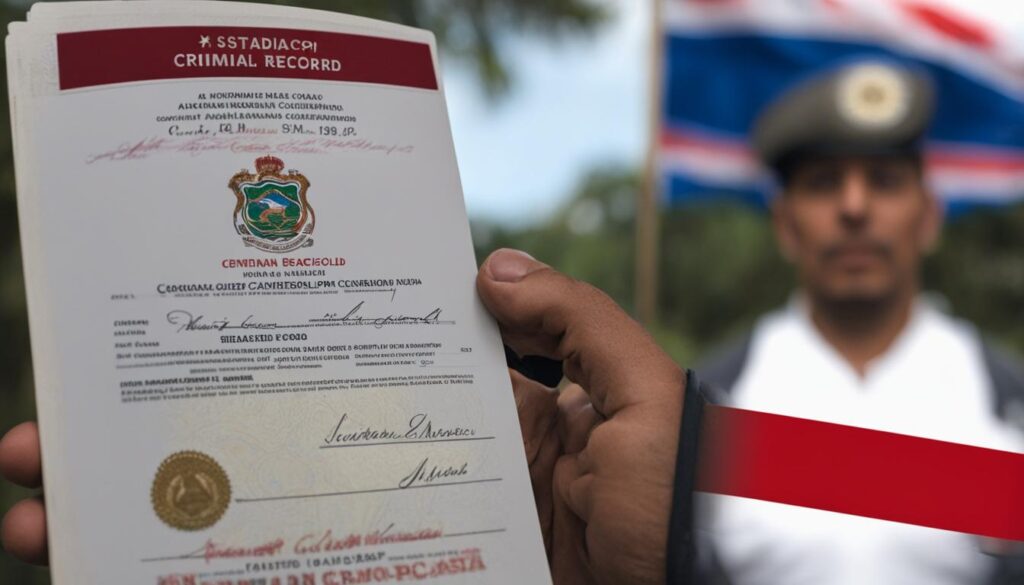At the forefront of property financing in Costa Rica, GapInvestments.com stands as a beacon for…

Understanding the Importance of a Clean Record for Costa Rica Citizenship
Obtaining citizenship in Costa Rica is a significant milestone that comes with various benefits and opportunities. However, it is crucial to understand the importance of having a clean record when pursuing Costa Rican citizenship. A clean criminal history is a key requirement for citizenship eligibility, and any criminal convictions or pending charges can have serious legal implications for the immigration process.
Costa Rica requires applicants to have been legal residents of the country for at least five years before applying for citizenship. Additionally, applicants must be at least 18 years old and demonstrate proficiency in the Spanish language, as well as knowledge of Costa Rican culture and history. These requirements ensure that individuals seeking citizenship have a genuine connection to the country and its values.
As part of the application process, background checks are conducted to verify the clean criminal record of applicants. This involves obtaining a criminal record check from the applicant’s home country and providing certified translations of all required documents. The application is then submitted to the Costa Rican authorities, along with the necessary processing fee.
A clean record offers significant benefits when obtaining citizenship in Costa Rica. It not only increases the likelihood of a successful application but also demonstrates a commitment to abiding by the laws and values of the country. Moreover, having a clean record opens doors to various opportunities and privileges that come with Costa Rican citizenship, such as access to social services, work and study rights, and the ability to obtain essential citizenship documents.
Key Takeaways:
- A clean criminal record is a crucial requirement for obtaining citizenship in Costa Rica.
- Applicants must meet residency requirements, age restrictions, and demonstrate language proficiency and cultural knowledge.
- Background checks are conducted as part of the application process to verify a clean criminal history.
- Having a clean record increases the chances of a successful citizenship application and opens up various benefits and opportunities.
- Costa Rican citizenship provides access to social services, work and study rights, and essential citizenship documents.
Steps to Obtain Costa Rican Citizenship
Obtaining citizenship in Costa Rica involves several steps that applicants must follow diligently. The first step is to gather all the required documents, which include a certified copy of the birth certificate, passport, and a criminal record check from the applicant’s home country. These documents must be translated into Spanish by a certified translator to ensure accuracy and compliance.
Once all the necessary documents are gathered and translated, applicants can proceed to the next step, which is preparing the citizenship application. This involves completing the application form and attaching all the required documents. It is crucial to double-check the application to ensure it is complete and accurate, as any errors or omissions may lead to delays or rejection of the application.
After preparing the application, it can be submitted to the Costa Rican authorities along with the processing fee. The authorities will then review the application and may invite the applicant to attend a citizenship interview. During the interview, the applicant’s knowledge of Costa Rican history, culture, and society will be tested to assess their integration into the country.
If the application is successful and the interview is passed, the applicant will be granted a citizenship certificate, which serves as proof of their Costa Rican citizenship. It is important to note that the duration of the entire process can vary depending on the volume of applications and the complexity of the case, so patience and thoroughness are key throughout the process.
Summary:
- Gather the required documents, including a certified copy of the birth certificate, passport, and a criminal record check from the home country.
- Translate all the documents into Spanish with the help of a certified translator.
- Prepare the citizenship application, ensuring it is complete and accurate.
- Submit the application to the Costa Rican authorities along with the processing fee.
- Attend a citizenship interview to test knowledge of Costa Rican history, culture, and society.
- If successful, receive a citizenship certificate as proof of Costa Rican citizenship.
Obtaining citizenship in Costa Rica is a significant milestone that requires careful preparation and adherence to the application process. By following the steps outlined above and seeking professional guidance when necessary, individuals can navigate the journey to Costa Rican citizenship successfully.

Benefits of Costa Rican Citizenship
Obtaining citizenship in Costa Rica comes with a range of benefits that can greatly enhance the quality of life for individuals and their families. As a citizen, one gains access to various social services, including healthcare, education, and social security. This ensures that citizens have the necessary support and resources to thrive in Costa Rican society.
One of the key advantages of Costa Rican citizenship is the ability to work and study in the country without the need for a work permit or student visa. This opens up a world of opportunities for career advancement and personal development. Whether it’s pursuing higher education or exploring new job prospects, citizens have the freedom to follow their aspirations without bureaucratic restrictions.
Citizenship in Costa Rica also grants individuals important citizenship documents, such as a Costa Rican passport and national ID card. These documents serve as proof of citizenship and can be used for travel purposes as well as identification within the country. Having these documents simplifies daily life, making it easier to navigate various administrative processes and access services.
Overall, becoming a citizen of Costa Rica offers numerous benefits, including access to social services, the ability to work and study freely, and obtaining essential citizenship documents. These advantages contribute to a more fulfilling and prosperous life in the vibrant Costa Rican community.

Table: Benefits of Costa Rican Citizenship
| Benefits | Description |
|---|---|
| Access to Social Services | As a citizen, individuals have access to healthcare, education, and social security. |
| Work and Study Opportunities | Citizens can work and study in Costa Rica without the need for a work permit or student visa. |
| Citizenship Documents | Citizens receive a Costa Rican passport and national ID card, providing proof of citizenship and facilitating various administrative processes. |
Conclusion
In conclusion, obtaining Costa Rican citizenship is a significant milestone for individuals looking to fully integrate into the vibrant Costa Rican community. The process involves meeting specific eligibility criteria, including residency requirements, age restrictions, and a clean criminal record. Applicants must also demonstrate basic proficiency in the Spanish language and show familiarity with Costa Rican culture and history.
The application process requires gathering required documents, such as a certified copy of the birth certificate, passport, and a criminal record check. These documents must be translated into Spanish by a certified translator. The completed application, along with the processing fee, is then submitted to the Costa Rican authorities. If the application is successful, applicants may be invited for a citizenship interview to test their knowledge of Costa Rican history, culture, and society.
Once citizenship is obtained, individuals can enjoy a range of benefits. These include access to social services, such as healthcare, education, and social security. Costa Rican citizens have the right to work and study in the country without the need for additional permits or visas, providing greater opportunities for career and personal development. Moreover, citizenship grants important documents like a Costa Rican passport and national ID card, facilitating travel and identification within the country.
Throughout the application process, it is advisable to seek professional guidance to ensure a smooth and successful journey towards Costa Rican citizenship. By meeting the residency requirements, completing the application process diligently, and understanding the benefits of citizenship, individuals can lay the foundation for a fulfilling life in Costa Rica.
FAQ
What are the eligibility criteria for obtaining citizenship in Costa Rica?
The eligibility criteria for obtaining citizenship in Costa Rica include residency requirements, age restrictions, and a clean criminal record.
How long do I need to be a legal resident of Costa Rica before applying for citizenship?
You must have been a legal resident of Costa Rica for at least five years prior to applying for citizenship.
What is considered a clean criminal record?
A clean criminal record means that you must not have any criminal convictions or pending criminal charges in Costa Rica or your country of origin.
Do I need to demonstrate proficiency in the Spanish language to obtain citizenship?
Yes, applicants must demonstrate basic proficiency in the Spanish language.
What documents do I need to gather for the citizenship application?
You will need to gather documents such as a certified copy of your birth certificate, passport, and a criminal record check from your home country.
Do I need to translate my documents into Spanish?
Yes, all required documents must be translated into Spanish by a certified translator.
Is there an application fee for obtaining citizenship in Costa Rica?
Yes, there is a processing fee that needs to be paid when submitting the application.
Will I need to attend a citizenship interview?
It is possible that you may be invited to attend a citizenship interview where your knowledge of Costa Rican history, culture, and society will be tested.
What benefits come with Costa Rican citizenship?
Some benefits of Costa Rican citizenship include access to social services, the right to work and study without a permit or visa, and obtaining a Costa Rican passport and national ID card.


